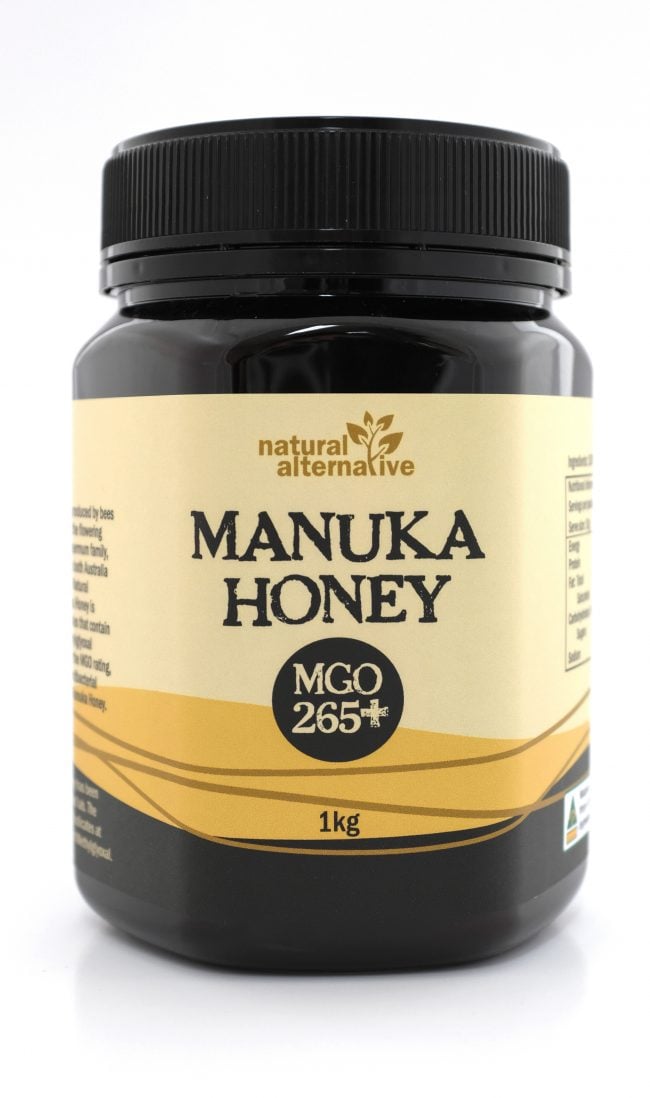Oi you over there, stirring a spoonful of honey into your hot water to aid digestion. And you, with the sore throat, dumping half a squeezy bottle of honey in your mouth.
Put down the tub of delicious, sticky, sweet $4.99 supermarket honey because there’s a good chance it can’t actually help you.
Manuka honey, on the other hand, can.
Mums have been recommending a good ole teaspoon of honey to soothe scratchy sore throats and cure colds since the dawn of civilisation (we presume, anyway) but in the mid-80s, Manuka honey became the premier honey of choice for scientists and anyone taking a keen interest in their health. And now, Instagram influencers.
If you’re not living your life in the ‘wellness’ space, it’s easy to write off Manuka honey as just another thing we have to spend money on to ‘be healthy’. Ugh.
But according to a stack of academic research and experts like Healthy Life Nutritionist Cayte Moxom, Manuka honey is worthy of the hype.
So strap on your goggles and let’s take a deep dive into the science behind Manuka honey, why it’s so expensive, and what makes it different from other honeys on the shelf.
What is Manuka honey?
Manuka honey is type of honey derived from the bees that feed on the nectar of New Zealand Manuka trees (otherwise known as Leptospermum scoparium).
Thick and dark in colour, Manuka honey has medicinal properties you won’t find in the regular squeezy bottles on supermarket shelves.
It wasn’t until the mid-1980s that these properties were discovered and reported on by Professor Peter Molan of New Zealand’s Waikato University, who found the low pH and high sugar levels in the honey could inhibit microbial growth.

